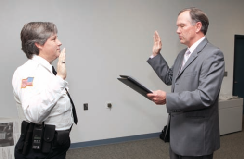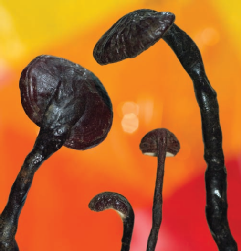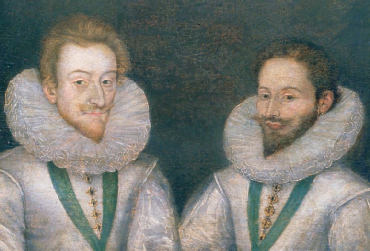Zoner Named CUPD Chief; In State of the U, Skorton Praises Past and Future; New Budget VP Appointed; Rare Fungi Returned to China; Campus Mourns Three More Student Deaths; Thousands Attend Sustainable Business Event on the Hill; CU Mare is Genome Donor; Panel Discussion Focuses on Program Houses

The area around Ithaca sits atop the Marcellus Shale, a huge deposit of Devonian-era rock that harbors trillions of cubic feet of natural gas. For many years, it was considered impractical to drill for this gas, as the rock gave it up reluctantly. But the development of new drilling methods, including a process called hydro-fracking, has made it possible to greatly increase yields. This, in turn, has led to a push by drilling companies to lease land atop the Marcellus Shale for gas production.
There are serious environmental concerns about the process, including the possibility that hydro-fracking can contaminate aquifers and threaten the water supply. The drilling also produces a large volume of chemical waste, which must be disposed of properly. Some residents of New York's Southern Tier have objected to the possibility of gas drilling in their area, which has been reported by local newspapers including the Ithaca Journal.
In mid-November, the Faculty Senate considered a resolution that would have asked the University to create a committee that could decide whether to lease any Cornell-owned land to gas drilling companies, among other measures. After a discussion in which it was debated whether Cornell should take such action or remain a neutral source of scientific information, the resolution was tabled. Later in the month, Cornell Cooperative Extension presented an informational session called "New York Natural Gas Summit: Challenges and Opportunities" in Owego. More than 300 local residents attended. On December 1, a capacity crowd in Uris Hall attended a panel discussion about the issue, featuring experts in geology, energy, groundwater, and public policy. The same day, the environmental group Kyoto Now! organized a rally against the drilling that drew about fifty people to Ho Plaza.
Further information is available online at http://gasleasing.cce.cornell.edu
Zoner Named CUPD Chief

Longtime University Police officer Kathy Zoner has been named the force's first female chief. An eighteen-year member of the CUPD, she has been a deputy chief since 2007 and served as interim chief since last May. Zoner, who succeeds outgoing chief Curt Ostrander, is a graduate of Ohio State University and the FBI National Academy. President Skorton noted that CUPD's duties "range from the routine to planning for visits from heads of state to handling tragic circumstances in our campus and community."
In State of the U, Skorton Praises Past and Future
Although faculty hiring has been curtailed in response to the economic downturn, recruitment will soon return to a "healthy pace," President David Skorton promised in his annual State of the University address. Speaking in Statler Auditorium during Trustee/Council Weekend in October, Skorton pledged that over the next five years, Cornell will hire hundreds of "bold and brilliant" professors. "For the near-term future, we need to shift our focus from bricks and mortar to people," he said. "The faculty are the soul of a great university."
During the talk, Skorton repeatedly referred to Cornell's history as a guidepost for its future. In addition to quoting past presidents A. D. White and Dale Corson, he had archivists display artifacts such as a medieval illuminated manuscript and a nineteenth-century machine for teaching mechanical engineering. He described the "four pillars" on which the University was built: classic and contemporary inquiry, innovative thinking, student access to education, and public engagement. "We get to our future, I believe, by way of the past," he said, "by remembering Cornell's ideas and ideals."
New Budget VP Appointed

A veteran higher education administrator has been tapped as Cornell's new vice president for budget and planning. Elmira Mangum comes to the Hill from the University of North Carolina, Chapel Hill, where she served as senior associate provost. Previous positions include associate provost for resource management at SUNY Buffalo and senior budget and management analyst for the Dekalb County, Georgia, finance department. A magna cum laude graduate of North Carolina Central University, Mangum holds two master's degrees from the University of Wisconsin, Madison, as well as a PhD in education administration from SUNY Buffalo. She assumes the post on February 1.
Rare Fungi Returned to China

Seven decades after a Cornellian smuggled a collection of rare fungi out of his native China for safekeeping, it has been returned. On a visit to Beijing in November, President Skorton and Alice Pell, vice provost for international relations, took part in a formal repatriation ceremony. The more than 2,000 specimens, documenting the biodiversity of Chinese fungi, were brought to campus in 1940, during the Japanese occupation of China. Mycologist Shu Chun Teng '26, MS '26, risked his life in an effort to preserve them; similar specimens left in China during the occupation were destroyed.
Campus Mourns Three More Student Deaths
Three students died within a two-week period this fall, all in circumstances that reportedly did not involve foul play but whose specific causes have not been disclosed. In mid-October, freshman Boon Jim Lim, a native of Malaysia enrolled in the College of Arts and Sciences, was found dead in his room in Clara Dickson Hall. A week later, the University announced the death of Rion Wight '09, an architecture student who had been on leave for two years and had not completed his degree. And on November 1, horticulture graduate student Lucas Wooster, who was scheduled to receive his doctorate this spring, died in the Town of Ithaca. A total of five students have passed away this semester, including one junior who was killed in a car accident out of state and another who died of swine flu after falling ill during a campus outbreak.
 Skorton's sixtieth surprise: Professor Robin Davisson and a crowd of more than 100 students, faculty, and staff surprised Davisson's husband, President David Skorton, with a sixtieth birthday bash in the Cornell Store on November 23. The festivities included chocolate cake, a giant card signed by Cornellians from across campus, a serenade by the a capella group Class Notes, and "Happy Birthday" performed by McGraw Tower chimesmasters.
Skorton's sixtieth surprise: Professor Robin Davisson and a crowd of more than 100 students, faculty, and staff surprised Davisson's husband, President David Skorton, with a sixtieth birthday bash in the Cornell Store on November 23. The festivities included chocolate cake, a giant card signed by Cornellians from across campus, a serenade by the a capella group Class Notes, and "Happy Birthday" performed by McGraw Tower chimesmasters.
Thousands Attend Sustainable Business Event on the Hill
The 2009 Net Impact Conference drew some 2,400 businesspeople and grad students to campus for events including a "fireside chat" with President Skorton and General Electric CEO Jeffrey Immelt. The conference, which featured about 300 speakers over two days in mid-November, addressed topics related to sustainable global enterprise. Skorton and Immelt opened the meeting with a talk entitled "Driving Innovation and Economic Renewal in a Global Context."
CU Mare is Genome Donor
A Cornell research mare will have a place in veterinary history as the sole donor for the fully sequenced horse genome. The animal, named Twilight, was born and raised at the Vet college's McConville Barn. The genome, which was recently analyzed in the journal Science in a landmark article by equine medicine professor Doug Antczak '69, consists of 2.7 billion DNA base pairs. Says Antczak: "The horse genome sequence is changing equine research and clinical medicine fundamentally and completely."
Panel Discussion Focuses on Program Houses
As the University continues its review of program houses, the administration has reaffirmed its commitment to the living units. "We are dedicated to program houses and they are not going away," Susan Murphy '73, PhD '94, vice president for student and academic services, said at a panel discussion in October. The houses have long been a contentious issue on campus: although some are geared toward topics like music, others (such as Ujamaa, which is predominantly African American) are racially or ethnically oriented. Critics have charged that the houses promote self-segregation, while supporters say they provide vital havens for minorities at Cornell. "As we seek to understand why many African American students choose to live in Ujamaa," Deputy Provost David Harris said at the event, "we should consider what we can learn by asking why many white males choose to live in fraternities." Last spring, a Program House Review was launched as part of what administrators call a routine assessment.
 The good life: The double portrait Two Gentlemen of the Order of the Holy Spirit is on display at the Johnson Museum as part of "An Earthly Paradise: The Art of Living at the French Renaissance Court." The exhibit, which opens January 16 and runs through April 18, features books, manuscripts, prints, and portraits reflecting the culture of the court in the sixteenth century.
The good life: The double portrait Two Gentlemen of the Order of the Holy Spirit is on display at the Johnson Museum as part of "An Earthly Paradise: The Art of Living at the French Renaissance Court." The exhibit, which opens January 16 and runs through April 18, features books, manuscripts, prints, and portraits reflecting the culture of the court in the sixteenth century.


